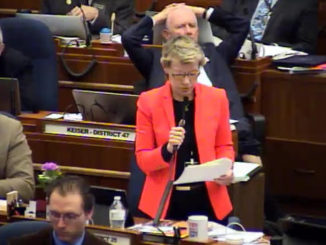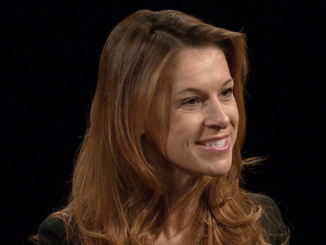
On Friday, Senate Bill 2186 was on the House Calendar after sailing through the Senate without a single dissenting vote. Typically it would have been introduced, put up for debate, and then voted on. But for some reason the bill was sent back to the House Education Committee for "rereferral".
SB 2186 is an education bill that would create a new section of the North Dakota Century Code that would grant the Superintendent of Public Instruction new authority for what some call "innovation" or "project-based learning". Undoubtedly, this bill stems from our current Superintendent Kirsten Baesler’s association with venture capitalist and former Obama appointee, Ted Dintersmith.
Dintersmith has been touring the country promoting his education documentary, "Most Likely to Succeed". For full disclosure, I have not viewed the documentary. Dintersmith turned down the opportunity to have it on Netflix. So, the only way it appears a person can view it is through one of his community screenings, which is odd. I have viewed the trailer, listened to interviews, and viewed a TEDx presentation by Dintersmith on the topic of "innovation in schools". And to be honest, I like a lot of what I hear in terms of his diagnosis of problems in education today.
Last August Dintersmith came to North Dakota and had multiple screenings for his documentary throughout the state. It was here that Superintendent Kirsten Baesler first indicated that North Dakota would become a participant in the idea of innovation in schools:
"Why not us? If we don’t create this environment for our kids to thrive, not just to make it through, but to thrive, that is on us. They have no decision making power or authority. We are the dominant decision makers. If we don’t set up their environment for success, that is on us."
So, what might be the problem with SB 2186? I won’t pretend to know what may have caused the rereferral. But there are some things the House should fully realize before supporting the bill.
First, that the idea of innovation as outlined in the bill is really vague. Which, to some degree, is understandable when we consider that innovation in and of itself may mean a variety of things to a variety of different people. Nevertheless, should the legislature ultimately pass the bill and the governor signs it, they should not act surprised by what some districts and Superintendent Baesler consider innovation. This is a revolutionary turn of sorts away from the model of education that is being utilized in schools across North Dakota now, which may or may not be a good thing.
Second, the bill completely empowers the Superintendent of Public Instruction to set all the rules regarding the administration and rollout of this new educational idea of innovation. Is the legislature comfortable with empowering the Superintendent with that much authority?
Third, while the bill appears to have local control embedded in it, this may be illusory. Here’s the reason. Yes, it is true that the school board must approve any plan for innovation, but the Superintendent of Public Instruction gets the final say. Should she reject a request, the school must work with her to modify the request. In the end, she is the decision-maker, not local school boards.
Fourth, and this is another grant of power, the bill completely empowers the Superintendent of Public Instruction to "provide the school with a waiver of any state statute or rule or provide authorization necessary for implementation of the plan." Yes, you read it right. She – and she alone – can waive any existing statute or rule in relation to education to make an innovation happen. That’s a lot of power in one office.
So, perhaps any concerns with SB 2186 shouldn’t be so much about Ted Dintersmith’s idea of innovation in North Dakota schools as it is about a bill that appears to grant some serious power and authority to one person over the future educational opportunities of North Dakota’s schools.
For me, there’s too many unanswered questions. And considering our Superintendent’s history of dishonesty, I have concerns. Is there a boogeyman in SB 2186? Until the House can satisfactorily answer that question, then perhaps they should do what the Senate did not and amend the bill or give it a No vote.
If you’re interested, here’s the trailer to Dintersmith’s documentary:
Here’s his TEDx Presentation:
Sources:
1. http://www.thedickinsonpress.com/news/education/4105214-dickinson-educators-view-documentary-about-reforming-traditional-learning
2. http://bismarcktribune.com/news/local/education/bringing-innovative-ideas-into-n-d-schools/article_2188f762-b26b-5864-8dab-144640f7d5bc.html





